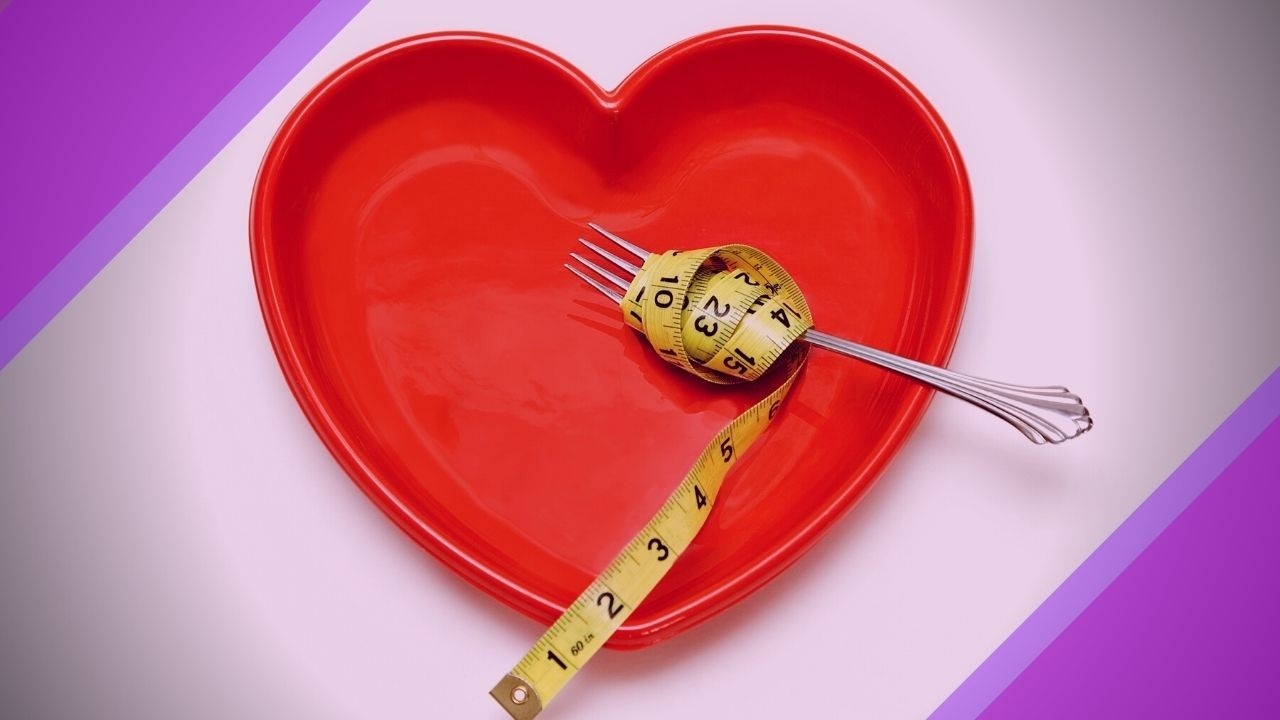
The Health Benefits of Healthy Body Fat
Mar 09, 2022Research shows body fat, especially in midlife, is not all bad.
By Selene Yeager
As active, performance-minded women, the body composition changes that come on as our hormones fluctuate and decline can be frustrating AF. I see that in our social media channels and our membership. And I feel it. As someone who spends 10 to 15 hours a week or more riding bikes in a hilly state, I’m keen to work with my changing physiology to stay strong and minimize body mass that isn’t pulling its weight. I also recognize that some body composition shifting is inevitable as my body changes and, of course, with age. So, I’m encouraged by the research on the positive and protective effects of body fat.
Yep, I said positive and protective in the same breath as body fat. We’ve been taught that fat is the root of all metabolic evil for so long that we’ve come to view any bit of fat on our body as a bad thing. That’s just not true.
I’ve mentioned it before. But one of the best Hit Play Not Pause episodes on this topic is Episode 44, Weighty Matters with Diana Reid, MPH, RDN, of The Global Dietitian, who runs, rides bikes, lifts, and is licensed as a dietitian in both the US and Luxembourg.
The synopsis from that show is that weight changes in menopause are largely due to estrogen decline. Estrogen regulates many biological processes. It helps regulate cholesterol, bone health, and facets of our metabolism. When it goes into decline, cholesterol levels can suddenly increase; we can become more insulin resistant, and we can start losing bone. So our body says, “Woah. We need to prop ourselves up here” and it starts producing more fat, which in turn produces some estrogen. Research has shown moderate weight gain can actually have a cardioprotective effect. (More on that, and more, in a bit.)
Which brings me to some recent research on the benefits of body fat and how, as active women, our body fat may be even more primed to work in our favor.
Body Mass Benefits Bone
Research has found that higher body mass index and weight are associated with slower rates of peri- and postmenopausal bone loss.
A January 2022 Chinese study on more than 350 postmenopausal women between the ages of 60 and 87 with a BMI under 30 reported that higher lean mass, total fat mass, and body fat percentage were associated with increases in both total and regional (head, ribs, legs, arms, spine, lumbar spine, femoral neck, hips) bone mineral density. And total fat mass by itself was linked to better bone density.
That said, abdominal fat by itself was not protective of skeletal health and was found to be negatively associated with both total and regional bone mineral density, leading the researchers to conclude that “proper weight gain” along with physical activity, which can reduce abdominal fat gain even without weight loss, may be beneficial to bone health among postmenopausal women.
This dovetails with what osteoporosis and metabolic bone disease specialist and certified Menopause Practitioner Alana Serota, MD, said in Hit Play Not Pause Episode 53 All About Your Bones with Drs. Marci Goolsby & Alana Serota, where she cautioned that weight loss during this phase of life equals some bone loss.
“I tell my patients who are post menopause that if you lose 10 pounds, you're losing bone. It's one of the cruelties of life after 40: When we lose weight, we lose bone,” Serota said.
Researchers are still delving into how body fat benefits bone density, but it goes beyond gravity (i.e. more weight means there’s more stress on your bones), because in this study where body fat accounted for a relatively small fraction of overall body weight, gravitational forces aren’t likely to fully explain the bone-building benefits. Instead, the study scientists point to research that suggests that cells in fat tissue called adipocytes can produce hormones that impact bone metabolism and may stimulate the production of bone-building osteoblasts and inhibit the osteoclasts, which break bone down.
Other research suggests that increased production of estrogens by fat tissue may also contribute to the association between bone mineral density and body weight.
Thick Thighs, Healthy Heart
We’ve been taught that body fat is bad for the heart. But there are sex differences. As I wrote about in an earlier post, body fat appears to be cardioprotective in women. A 2021 UCLA study published in the Journal of the American Heart Association reported that having higher muscle mass was associated with lower death rates from cardiovascular disease in both men and women. However, in women, but not men, higher body fat was also associated with a lower risk of dying from heart disease no matter what their muscle was.
Specifically, women who had high body fat as well as high muscle mass had a 42 percent lower risk of dying from heart disease than women with low muscle mass and low body fat. But women with high fat levels regardless of muscle mass also had significantly lower heart disease death rates. The study found that there was no significant advantage to having high muscle mass and low body fat over having low muscle and low fat, leading them to conclude that women specifically should prioritize building muscle mass over losing weight to improve their cardiovascular health.
Where the fat is stored appears to be a big part of this story. Men store most of their fat in the abdominal region, which includes the deep visceral fat that is known to increase heart disease risk. Though women start to store more fat in their abdominal region during and after the menopause transition, we still store more in our hips and thighs, and that fat is associated with healthier lipid and blood sugar levels and lower cardiovascular disease risk and can offset the risks that come with additional belly fat.
An older study in the Lancet that reviewed data from more than 27,000 adults from 52 countries found that people with a larger hip circumference have a lower risk for heart attack. Another study of more than 9,500 adults published in 2020 reported that a large thigh circumference was linked to lower blood pressure and a reduced risk for heart disease in people who had been classified as overweight or obese, regardless of their weight circumference or BMI.
Finally, a 2013 meta-analysis published in the Journal of the American Medical Association (JAMA) reported that being overweight (according to BMI, which is problematic, but that’s what so many studies use) is associated with a lower risk of premature death.
Body Fat Activated
Finally, scientists have known for a long time that fat is not just inert energy storage and insulation: it acts as an organ and it interacts with other organs and impacts our metabolic function. A recent study published in The Journals of Gerontology explains that the key to aging healthfully might just be in keeping our body fat functioning optimally.
“Among other things, fat tissue releases substances that affect muscle and brain metabolism when we feel hungry and much more. So, it’s important that fat tissue works the way it should,” said the study author Anders Gudiksen, Ph.D, of the University of Copenhagen’s Department of Biology in a press release.
Detrimental changes in our fat cells (especially the adipocytes) can increase our risk for cancer and metabolic diseases like diabetes as we get older. But this new study demonstrates that exercise can help maintain our fat tissue function.
Gudiksen and his colleagues looked at the role of age and exercise in maintaining fat tissue function. Specifically, they studied mitochondria, which as you know, are the energy producing factories in our cells. Impaired mitochondrial function in our adipocytes (those hormone-producing fat cells) is associated with increased levels of low-grade inflammation, unfavorably altered metabolism, and excess production of reactive oxygen species (commonly known as free radicals).
The researchers compared mitochondrial performance across a range of young and older untrained, moderately trained, and highly exercise trained Danish men (no women in this one unfortunately, but it’s not unreasonable to think our response here would be similar). As you’d expect, the ability of mitochondria to respire (i.e. produce energy) decreases with age, regardless of activity levels. But exercise provides a powerful protective effect.
"Although mitochondrial function decreases with age, we can see that a high level of lifelong exercise exerts a powerful compensatory effect,” Gudiksen explains in the release. “In the group of well-trained older men, fat cells are able to respire more than twice as much as in untrained older men."
Exercise appears protective on a couple of levels here. One, it helps protect against free radical damage, which has been linked to a wide range of diseases including cancer, heart disease, and Alzheimer’s, so we’re better able to maintain the health of our fat cells.

"The group of older people who train most form less ROS [aka free radicals] and maintain functionality to eliminate it,” said Gudiksen in the release. “Their mitochondria are better at managing waste produced in fat cells, which results in less damage. Therefore, exercise has a large effect on maintaining the health of fat tissue, and thereby probably keeping certain diseases at bay as well,"
When we exercise, we also build more mitochondria. The researchers saw that the older participants who exercised the most throughout their lives had more mitochondria overall, which allowed for more respiration and the ability for fat cells to release more of the hormones important for the body's energy balance.
“Our results show that you can actually train your fat tissue to a very high degree – but that you needn’t cycle 200km a week to achieve a positive effect. What you shouldn't do, is do nothing at all," concluded Gudiksen, who hopes that the research world will focus more on what people can do to maintain the health of their fatty tissue.
So, next time you head out to the gym or for a long run, ride, or swim, recognize that you’re not just training your muscles to stay healthy over time, but you’re keeping your fat healthy, too.
Get Feisty 40+ in Your Inbox
We hate SPAM. We will never sell your information, for any reason or send you emails that suck!


